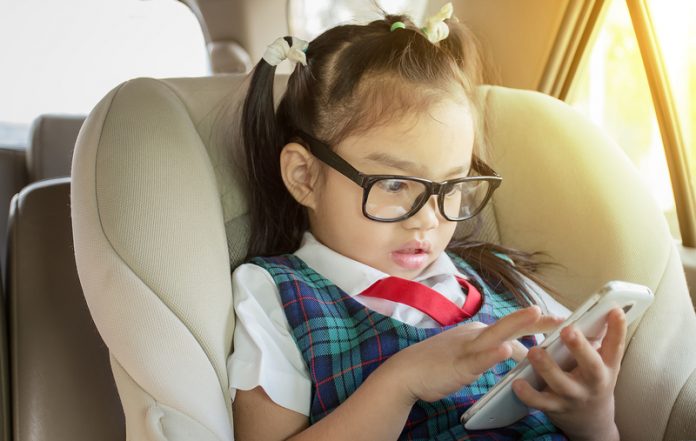Ahead of England’s Health Secretary meeting the bosses at Instagram over the handling of self-harm and suicide content, a new report into children’s screen time use has been released today
Long gone are the days of watching Saturday morning cartoons solely through a television screen in your living room. With the internet and platforms such as YouTube and NETFLIX, an endless library of content for children across the globe has been created.
Not only has this changed viewing habits, but this has also changed the media which children consume.
The UK’s four chief medical officers have said screen-related activities should be banned from the dinner table and bedtimes as part of a healthy approach to devices.
However leading developmental psychologist and The Secret Life of 4-Year-Olds Dr Sam Wass is warning parents not to scaremonger because there is no evidence for long-term negative outcomes from screen use – as long as they are used in moderation.
Developmental Psychologist, Dr Sam Wass, comments:
“Screens are exciting, and stimulating, and offer access to a world of fantasy, which children enjoy. Cartoons are easy for our brains to pay attention to, and research suggests that during normal day-to-day interactions young children’s brains have problems keeping up, and working out what is going on.
“Cartoons offer a simplified version of reality – because cartoon faces are less complex, and cartoon characters experience more ‘primary colours’ emotions – it is easier for young children to understand what is going on in a cartoon than it is in the real world. So cartoons can be an important training ground for children.”
Animations such as Masha and the Bear have proven to be very popular among both children’s and parents audiences, recently gaining the Guinness World Record for the most watched animated movie on YouTube.
First launched in January 2009 on TV, Masha and The Bear today is a worldwide hit 3-D animated family show that features Masha, a mischievous little girl that loves exploring the world around her, and the Bear, her kind and caring friend.
What makes Masha and The Bear unique is it’s creative, high-quality 3-D animation style, educational adventure format and more importantly the simple storytelling portraying fundamental Parent-Child relationships which are easily translatable and understood across every nation regardless of age, ethnicity and culture. Short episode lengths made the cartoon perfect for holding a small child’s attention, with original music and songs making it a timeless classic appealing to families across the world.
It’s so successful that is has been included in a list of ‘TV Shows Destined to be Classics’ – raising the question, what is its effect on its young audience?
Dr Sam added: “There is no doubt that screens are amazing at feeding children’s imaginations. They give them access to such a wide range of images, and sights, and people, that they never would have seen otherwise. As long as they are used in moderation, though, as part of a balanced and varied programs of activities, then there is no evidence for long-term negative effects.
“The challenge for parents is that a lot of children will tend to gravitate to screens given a choice. It’s definitely worth encouraging letting your child watch videos, for periods of time, but encouraging them to do other things as well. A varied diet of leisure time activities is important for children, as it is in everything. And there are other things – such as watching videos together with your kids – that can be really useful things to do as well. It can be a great way of starting conversations with your kids.”











